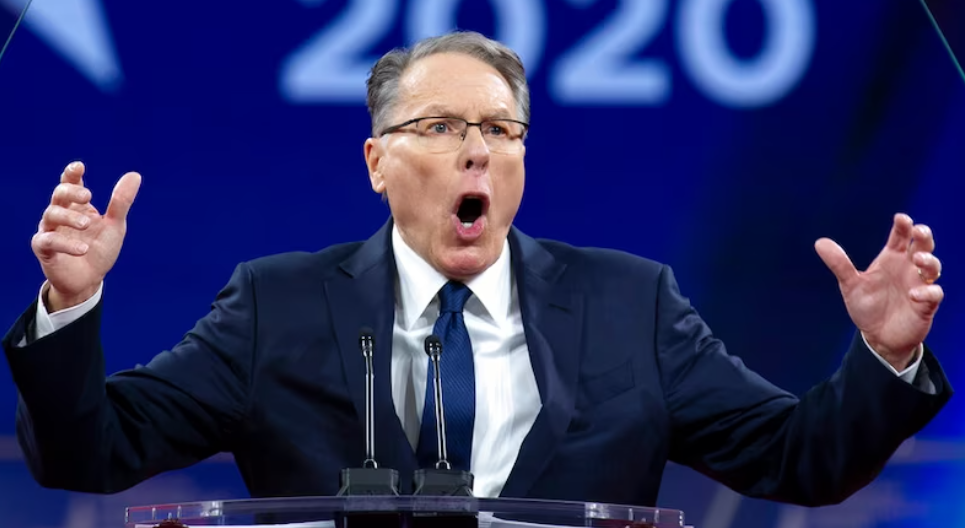The civil corruption trial against the National Rifle Association (NRA) and its top executives has entered a critical phase as the jury continues deliberations after the court recessed for the weekend and the Monday which is a public holiday.
At stake is the integrity of one of the most influential lobbying groups in a nation where civilian gun ownership surpasses the population count.
Throughout the trial, the New York Attorney General’s office has vigorously argued that the NRA and its key figures, including former CEO Wayne LaPierre, engaged in widespread corruption, necessitating the reimbursement of millions of dollars spent on personal luxuries.
Assistant Attorney General Monica Connell emphasized in her closing arguments the egregious misuse of funds, painting a picture of individuals caught red-handed in acts of financial impropriety.
Connell highlighted LaPierre’s extravagant spending on private planes, luxury accommodations, and other indulgences, all purportedly in the name of bolstering the NRA’s influence. She underscored instances where NRA funds were used to finance personal ventures, such as lavish vacations and exorbitant contracts benefiting insiders.
The prosecution pointed to the hiring and subsequent removal of Oliver North, former NRA president, as emblematic of LaPierre’s unchecked power and disregard for proper procedure. Connell argued that LaPierre’s actions not only betrayed the trust of NRA donors but also compromised the organization’s mission.
In contrast, the defense, led by LaPierre’s attorney Kent Correll, contended that LaPierre’s actions were motivated by a genuine desire to advance the NRA’s agenda rather than personal gain. Correll dismissed the prosecution’s claims as an attempt to tarnish LaPierre’s reputation and undermine the organization’s credibility.
The trial’s outcome holds significant implications for both the NRA and its members. While the attorney general’s office seeks restitution and penalties to rectify the alleged misconduct, the defense maintains that any benefits received were ultimately in the NRA’s best interest and that LaPierre acted with the organization’s welfare in mind.
As the jury deliberates, the broader debate over the role and accountability of powerful advocacy groups like the NRA looms large.
The trial serves as a stark reminder of the ethical responsibilities inherent in managing nonprofit organizations and the consequences of betraying the trust placed in them by their supporters.

